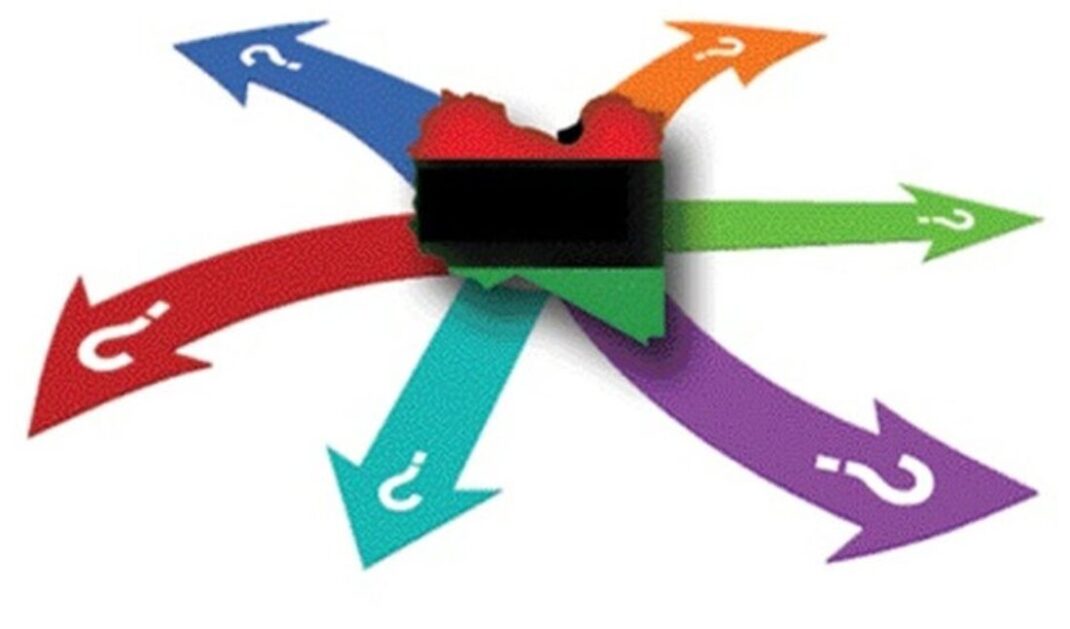By Mokhtar Ghomidh
 Summary: The outcome of the Libyan conflict hinges on two options: (a) an endless and disastrous war or (b) a peaceful resolution that suits both warring sides as proposed by the Americans.
Summary: The outcome of the Libyan conflict hinges on two options: (a) an endless and disastrous war or (b) a peaceful resolution that suits both warring sides as proposed by the Americans.
To do so, Richard Norland, the American ambassador and Stephanie Williams, the special representative and head of the United Nations Support Mission (UNSMIL) attempted to reach a sustainable peace agreement after a series of visits to Eastern and Western Libya, Egypt, Turkey, Russia and Italy.
These efforts led to an agreement to a ceasefire. Fayez Sarraj, the Prime Minister, and Aguila Saleh, President of the House of Representatives, agreed to an end to the fighting.
Despite positive indicators, statements issued by both leaders expose clear disagreements over crucial details, which may threaten to undermine the agreement.
Also, questions arise over Hafter’s political future and the possibility of incorporating him into the political process in spite of his defeat in Tarhouna in June of this year.
Wifaq forces are still located at the Bouirat Hassoun area, West of the coastal strategic city of Sirte, the only front that could see new military surprises.
Tensions between the two sides are likely to lead to escalation, leading to the US proposal to de-escalate tensions and obstruct Russian attempts to increase its influence in Libya, as warned by US Africa Command.
Introduction
In light of the current situation of no peace and no war in Libya, a question raised is whether Sirte is changing from a red to a green zone, referring to the US occupation of Iraq, during the last two months.
Feyez Sarraj and Aguila Salah agreed on a ceasefire in all regions of Libya in response to an American proposal. The accord has been the product of three major actors: America, Turkey and Russia.
It consists of a ceasefire, demilititarization of the strategic cities of Sirte and Jufra, joint deployment of security forces in coordination with the two factions in the temporal capital Sirte, resuming oil exportation, and organising presidential and parliamentary elections on a constitutional basis.
In fact, the whole peace process depends on the capacity of the international guarantor to clear out mine fields, create an atmosphere of trust, and transform Sirte from an agent of division to a factor for unity and state building.
“No peace no war” logic
In light of the no peace no war situation, a series of intensive negotiations were held to build a sustainable peace in the aftermath of Hafter’s loss of the Al-Watiya airbase and defensive missiles.
Aguila Saleh presented his peace initiative just after Ahmed Al-Mesmari, the spokesperson of the Libyan National Army (LNA) declared what he called a “strategic withdrawal” on May 16 to Wed Jaref.
After Hafter’s loss of his military campaign, the two fronts have remained calm partly because the two major foreign actors, Russia and Turkey, have put off their talks on the future of Libya.
The United States is worried about Russia’s growing influence, particularly its takeover of airports and ports and involvement in military operations according to photos documented by AFRICOM.
As peace talks reached a stalemate, Washington has intervened and allied with Ankara, a strong NATO ally, to maintain its interests in the East of the Mediterranean.
Taking a hard look at the chronology of latest events in Libya reveals substantial efforts spared by the Americans to promote rapid de-escalation.
On August 9, Jonathan Cohen, the American ambassador to Egypt disclosed the American initiative to end the fighting in Libya after lengthy discussions with Tajeddine Razegui, national security advisor to the government of the National Accord (GNA).
This initiative included three main points: the creation of a demilitarized zone, redistribution of resources and expulsion of militiamen.
On 17 August, the Turkish and Qatari Defence Ministers visited Tripoli to resolve the situation in Jufra and the issue of oil installations.
Difference and coalition
Aguila Saleh’s declaration of a ceasefire on August 21, at the same time as a similar declaration by the Head of the Presidential Council Feyez Sarraj, was historic.
To many commentators, the decision was not surprising as it was the product of lengthy peace talks. The statements issued by the two sides, regardless of the credibility of their intentions, are evidently a result of internal and external pressure.
The rapid spread of coronavirus has aggravated the living conditions of ordinary Libyans.
From the outset, the two sides’ statements sounded compatible with the American initiative: an immediate ceasefire, expulsion of foreign mercenaries, resumption of oil exports and new mechanisms to transfer oil revenues to non-partisan actors, and free and fair elections.
Where the statement issued by the Government of National Accord is very close to the American proposal mainly in relation to the free zone in Sirte and Jufra, Aguila Saleh’s statement was ambiguous and did not overtly call for establishing a demilitarized zone in Sirte but only for removing all mercenaries, which would not, according to his reading, include Hafter’s mercenaries or militias.
While the GNA forces have accepted the American initiative and issued orders to their fighers, the LNA’s standing army in the West of Sirte has rejected it.
Although he is the chief army commander in Tobruk, Aguila Saleh has not issued the orders needed to implement the agreement.
This reinforces suggestions that Saleh is not the highest authority over these forces, but that those in charge of developments on the battlefield are the Russian “Wagner” group and Russian militiamen, which control Libya’s oil crescent region in Sirte.
Despite rumours, Saleh has remained a strong ally of Hafter. All signs show that Egypt and UAE have been excluded from all negotiations, which only included Turkey, Russia and the US, but they are applying pressure on the parties to involve Hafter in any future agreement.
Saleh’s declarations are contradictory and confusing.
On the one hand, he adopts the Cairo declaration on 7 June 2020, which consists mainly of restoring the state’s control over all security institutions, supporting military institutions in the war against terrorism and protecting state sovereignty, which includes giving Hafter major role in the future.
On the other hand, he purports to accept the American initiative.
Prospects of success of the American initiative
At the moment, nothing is clear regarding the Libyan peace initiative because of the growing presence of the Wagner Group.
It is impossible to speak of establishing a demilitarized zone while Russian mercenaries control the oil fields in the Sirte crescent and the Jufra base.
The peace talks were built on the outputs of the Berlin peace summit in January 2020, which reached two main conclusions – that a political agreement should be linked to the Abu Dhabi and Paris peace sumits, which depend on the military arrangements agreed on in Cairo and in the Geneva talks.
There are various sticking bombs that threaten to abort the peace process. It appears that the UAE is holding onto its alliance with Hafter and seeking to repackage him as a future leader and market his image to the public.
Suspicion has also been aroused by domestic attempts to pave the way for Saif Al-Islam Gaddafi to return to the political scene, which has prompted opposition among Hafter’s supporters.
There is widespread concern among ordinary Libyans regarding foreign powers’ desire to divide up the cake between them, so to speak, and take over the remaining oil resources at the expense of Libyan interests.
Conclusion
Despite Hafter’s absence from the political scene in the aftermath of his military defeat in the Western region, he remains influential and continues to hold some political cards.
Moreover, American involvement in the Libyan scene does not mean that the conflict has been resolved. To guarantee its success, the US should pressure both factions to make concessions.
Transforming Sirte and Jufra into a demilitarized zone requires an agreement among regional and global powers, particularly Russia and Turkey.
It is known that Russia’s increased support to Hafter is precisely designed to improve his negating position.
However, the United States’ ability to impose Aguila Saleh as a spokesperson for the East – and Putin’s silence in the face of Turkey’s assault against the LNA – shows that the keys to ending the conflict remain in the hands of the United States.
…
Translated by the Center for Strategic an Diplomatic Studies
***
Mukhtar Ghomaidh – researcher on Libyan affairs
***
The Center for Strategic and Diplomatic Studies (CSDS) – is a research institution that covers a broad regional field, including the countries of the Maghreb, the African space and the Mediterranean, with attention to the Tunisian issue, and the center has two headquarters in London and Tunisia … The center works to make serious contributions in the field of strategic, security, economic and diplomatic research.
___________






